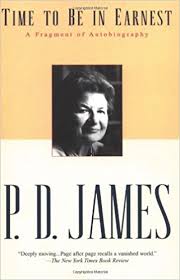
Scottish crime writer Ian Rankin is best known for his gritty Inspector John Rebus novels, set in Edinburgh. The actions in Rankin’s novels take place in real time, such that Rebus eventually retired from the force, with 2007’s Exit Music. Since then Rebus has appeared in four other novels in a civilian capacity, while still helping solve crimes. After Rebus’ retirement, Ranking started another series, featuring Malcolm Fox, an inspector with the Scottish equivalent of Internal Affairs, called Complaints and Conduct. The first novel in the series is The Complaints, published in 2009.
Fox is both different from Rebus and similar. A former alcoholic, Fox is now a teetotaler, unlike the hard-drinking Rebus. They’ve both been married and divorced, but Fox’s marriage didn’t last long enough to produce children. He seems to fail with the opposite sex, unlike Rebus who has regular relationships, though most tend not to last. Working in the Complaints division, Fox initially comes across as a bit of a moralistic person, with a stiff, almost Calvinist personality. Yet when the chips are down and he’s forced into a corner, Fox is not above bending rules, lying, and pushing relentlessly against anyone he encounters, either criminals or superiors in the police force.
The novel opens with Fox having brought a case against a supposed crooked cop. Apparently there are few of these in Edinburgh, as the Complaints division is staffed with only three officers, one quite new. With no current cases, Fox is loaned to a vice division, one specializing in handling crimes against minors. He’s brought into their current case since another cop, Jamie Breck, is suspected of illegal online activity. Problems and conflicts arise when Fox’s sister’s boyfriend is found brutally murdered only days after he broke the arm of his girlfriend, and the investigating officer is none other than the suspect Fox has been tasked with investigating.
The Complaints is a novel dealing with good people doing stupid things, especially Fox. There are times Fox should know better, but instead of sitting back and letting others do their job, he thinks only he can find the answer. This results in his suspension from the force, along with Breck. This step falls into the typical cop theme, and once suspended Fox doesn’t just kick back his heels and relax, but manages to work himself back into the investigation, becomes a suspect, and eventually find redemption. Partnering with Breck, he drags Breck into a series of stupid actions and decisions, although in the end some balance is restored.
Having read all the Rebus novels, even the more recent ones where Fox and Rebus intersect, this was the first stand-along Malcolm Fox novel I read. I found that I enjoyed the lack of Rebus in this book. Although Fox made some stupid decisions, he’s not a stupid person. He didn’t change much over the course of the novel, and he shares the dogged persistence so prevalent in the Rebus novels. Still, Rankin manages to create a compelling character quite different from his regular protagonist. I wonder why he focused on Fox, rather than on continuing the series with Siobhan Clarke, Rebus’ partner and successor in the force, as the main character. Fox only achieved one other stand-alone novel, after which Rankin brought Fox and Rebus together for subsequent appearances.
